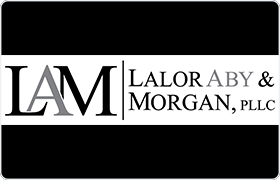Florence Estate Lawyer, Mississippi
Sponsored Law Firm
-
 x
x

Click For More Info:
-
Lalor Aby & Morgan, PLLC
230 Trace Colony Park Dr. Suite 4 Ridgeland, MS 39157» view mapEstate Law Get the Legal Support You Need
If you need an experienced litigation attorney, look no further than Lalor Aby & Morgan, PLLC.
800-758-9910
Baskin Jones
✓ VERIFIED *Status is reviewed annually. For latest information visit hereAccident & Injury, Criminal, Estate, Business, Lawsuit & Dispute
Helping injured people fight the insurance company. 18-wheeler, car wreck, wrongful death attorneys.
Mr. Jones’s practice includes all types of injuries, and death caused by the negligence of a person or business. Many injuries occur on the roadway,... (more)
Tabatha McCall Stern
✓ VERIFIED *Status is reviewed annually. For latest information visit hereEstate, Business, Estate Planning
T. McCall Stern ("McCall") is active in her community and has a passion for serving others. She practices predominately in the areas of estate plannin... (more)
Jon H. Powell
Real Estate, Wills & Probate, Trusts, Estate, Divorce & Family Law
Status: In Good Standing *Status is reviewed annually. For latest information visit here
Sean A Milner
Land Use & Zoning, Housing & Construction Defects, Wills, Divorce
Status: In Good Standing *Status is reviewed annually. For latest information visit here
Carol A Thompson
Estate Planning
Status: In Good Standing *Status is reviewed annually. For latest information visit here
FREE CONSULTATION
CONTACTJames Gary Mcgee
Business, Gift Taxation, International, Lawsuit & Dispute, Tax
Status: In Good Standing *Status is reviewed annually. For latest information visit here Licensed: 20 Years
Cody William Gibson
Accident & Injury, Bankruptcy, Criminal, Estate
Status: In Good Standing *Status is reviewed annually. For latest information visit here
Susan Durham Mcnamara
Real Estate, Litigation, Wills & Probate, Employment
Status: In Good Standing *Status is reviewed annually. For latest information visit here
Ken Harmon
Real Estate, Oil & Gas, Trusts, Estate Planning
Status: In Good Standing *Status is reviewed annually. For latest information visit here
W McDonald Nichols
Eminent Domain, Estate, Environmental Law, Business
Status: In Good Standing *Status is reviewed annually. For latest information visit here Licensed: 50 Years
 Owen Lalor Ridgeland, MS
Owen Lalor Ridgeland, MS


